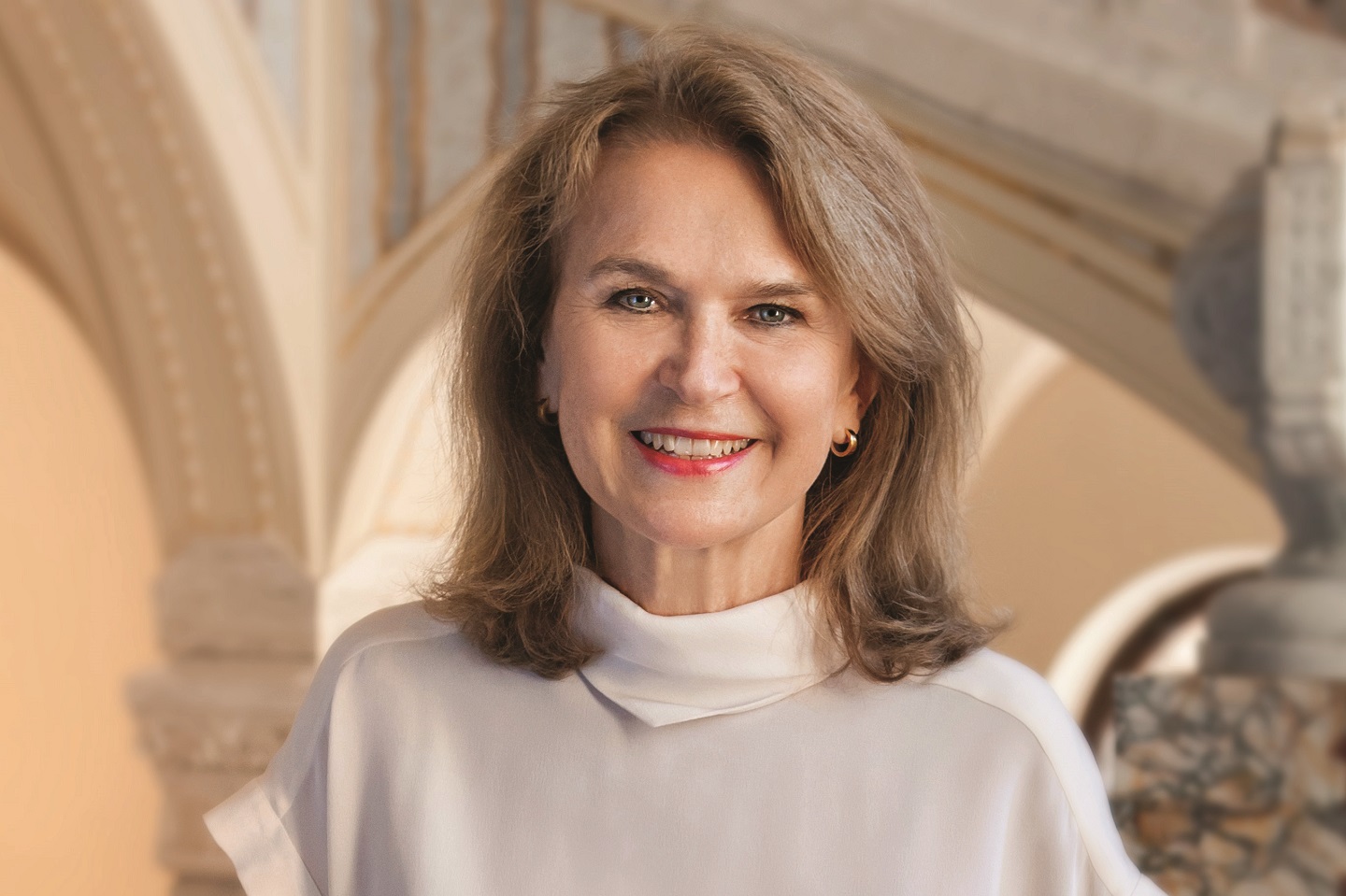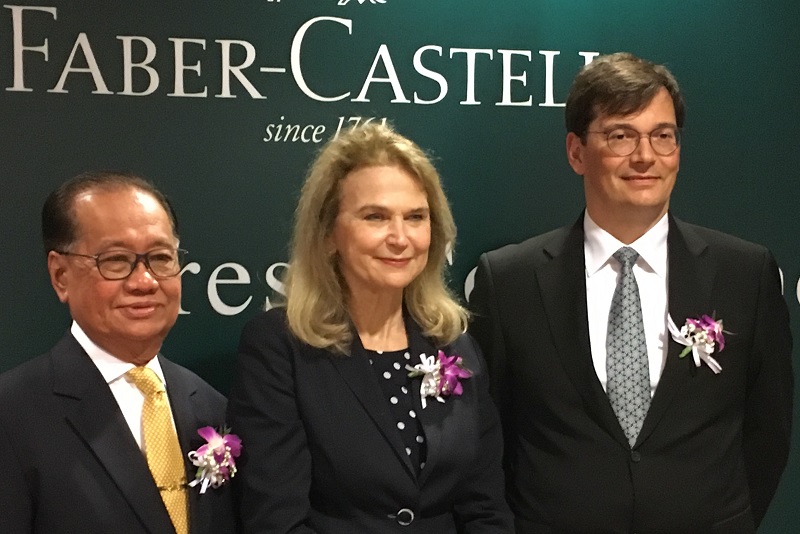
Countess Mary von Faber-Castell (Photo: Faber-Castell).
Faber-Castell’s memorable stationery has coloured most of our childhood. Its Malaysian subsidiary began in 1978 with only eight employees, producing erasers. Faber-Castell Malaysia managing director Dr Toh Yan Peng has made it the country’s largest stationery brand.
On March 15, the brand celebrated its 40th year in the country with a grand feast and cultural performances at the Kuala Lumpur Convention Centre. In attendance was Countess Mary von Faber-Castell, a member of the executive board and managing director of Faber-Castell’s cosmetics division. Faber-Castell Cosmetics is a leading private label manufacturer of cosmetic pencils; eyebrow pencils are currently among its top-selling products. Although this was the countess’ first trip to Malaysia, she did not have the chance to fully explore Kuala Lumpur owing to her packed schedule. “I’ve got to come back. I mentioned to Dr Toh today that it was 10 years ago that he invited me to Malaysia,” she tells Options.
It was quite by luck that Mary ended up in cosmetics. After obtaining her MBA in marketing, she had two choices. “It was either men’s sportswear or cosmetics. I don’t even want to think about how many years I’ve worked in cosmetics but I love it,” she says.
Truly passionate about coming up with innovative products, Mary feels that the growth of the industry has been very strong. “Women are working and earning their own living, so they can afford to buy cosmetics. I think women like to look good and they do look good. They are healthier, they’re living longer and that’s why it’s a very good business.”

There is also the less-delightful side of running a business, such as balancing budgets, which she says is difficult but necessary. “I sort of open the office and close it. It’s five days a week and long hours.”
Still, being in the industry for decades has granted her some benefits. “It’s fun because [these are] products you can use and try. You have to constantly look for innovation. Finding something new, trying it, asking people to try it and seeing if it works — it’s all fun. If you believe in your products, then it’s very easy to sell them.”
Mary adores travelling, which has recently become a more frequent part of her life. “It was a regret [of] my husband’s that he didn’t spend more time in the countries where he did business because he really enjoyed travelling. I think that is something I would like to learn from him,” she says. Count Anton-Wolfgang von Faber-Castell, who died in 2016, was the eighth generation of his family to run the company and also founded the cosmetics division.
The couple met through work. “I was a customer, so I thought he was just going to come and sell me pencils. I had never really heard of Faber-Castell, to tell you the truth ... A long, romantic story later, we starting dating and when I was in Germany [with him], I realised it was like being with the mayor.”
Mary realised just how famous Anton was when she suggested dinner at a pub. “We walked in and no one knew me. But I didn’t realise that everyone knew him. Everybody in the restaurant turned in silence and stared at us during the whole meal. My husband didn’t even notice,” she recalls.
The countess recollects a Faber-Castell event where she was asked an interesting question. “I think it was the company’s 222th anniversary party and maybe it was the first time he had brought a girlfriend because the press came up to me and asked, ‘Which sister are you?’ My husband was from a large family.”
Her transition from a working woman to countryside housewife was “a shock”. She explains that in America, professional women continue working when they have children but in Germany, this was not the case. “I sort of followed the German trend at first but then missed working. My husband, fortunately, was very liberal about my being happy and willing that I should work, so that was great.”

When the countess began working again after her first child went to kindergarten, she had to go through a bit of an adjustment period. “I came in not only as the wife of the owner but an American businesswoman, which made it doubly strange. As an American, you have this Anglo-Saxon politeness where you say, ‘I think we should’ or ‘We could do this’. When I started working in Germany, they didn’t understand that I meant we should do this. I had to learn to be more direct,” she explains.
Although she was initially reluctant to work with Anton, she found they had “a certain respect and balance that worked”.
Mary’s wealth of experience has benefited Faber-Castell Cosmetics greatly because having been a customer for so long, she thinks like one. “I know the questions that are going to be asked as I know what people are going to want. I know what’s reasonable and I also know when you have to say no.”
When asked if Faber-Castell intends to create its own brand of cosmetics, she admits that she likes the niche it is in. “We talk even in stationery about avoiding red oceans, where everybody is. Blue oceans have a category where very few people can make the products as they are very complicated, so [that] makes it nice. It is easier to stay where you’re an expert,” she explains.
This article first appeared on Apr 30, 2018 in The Edge Malaysia.


